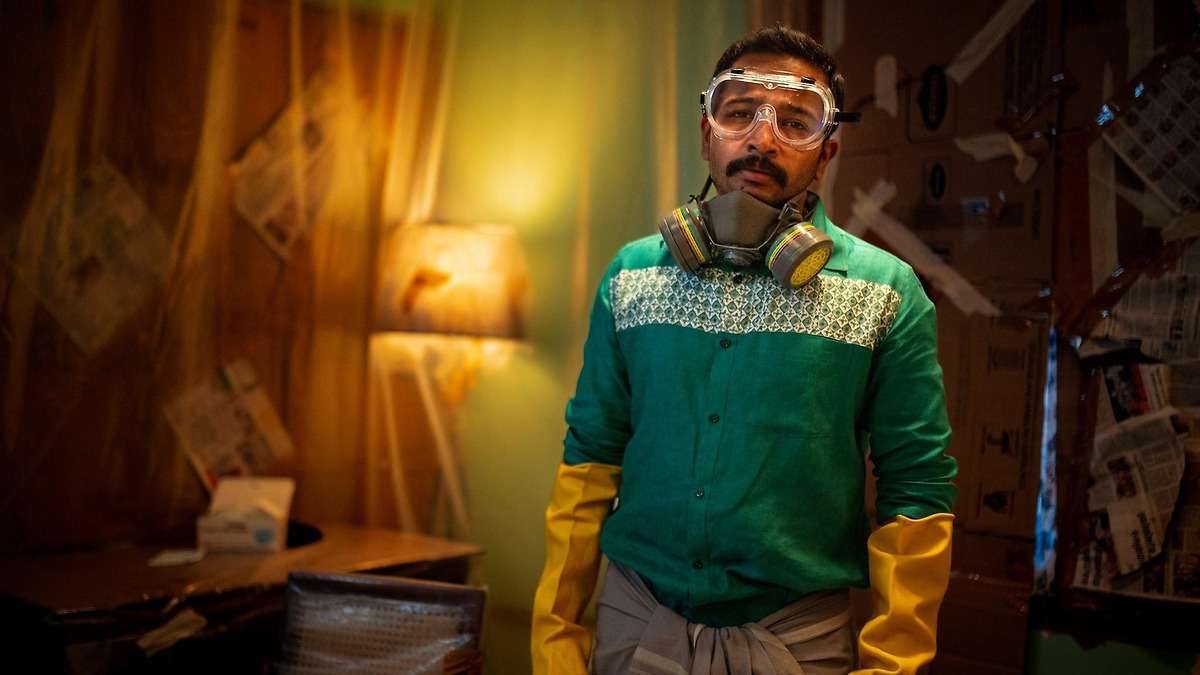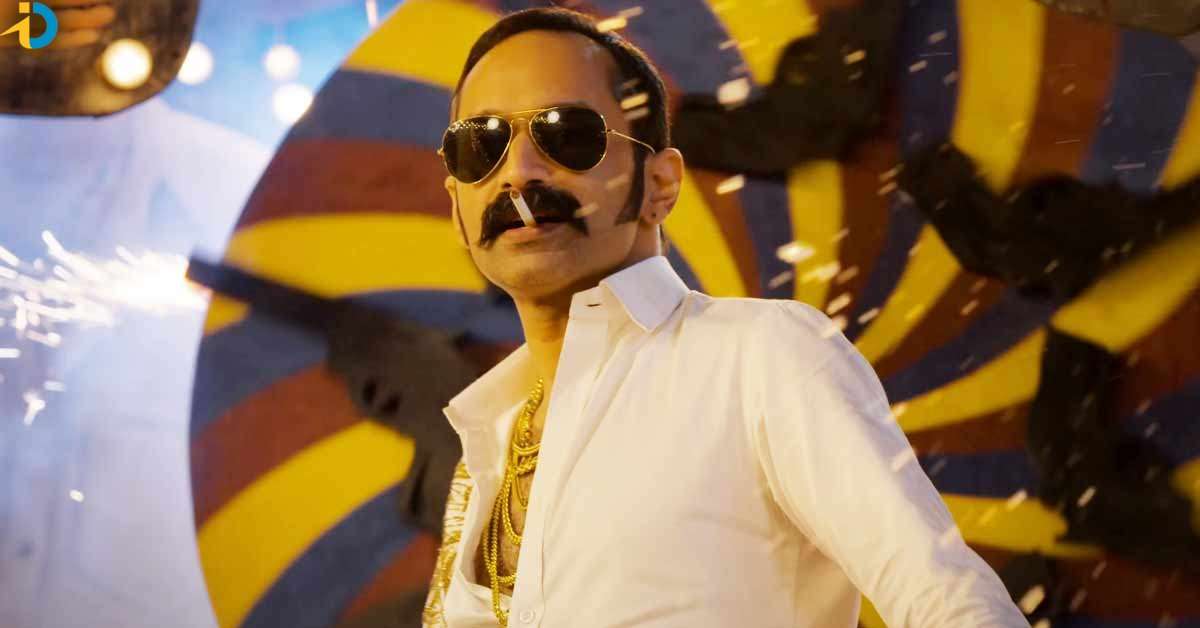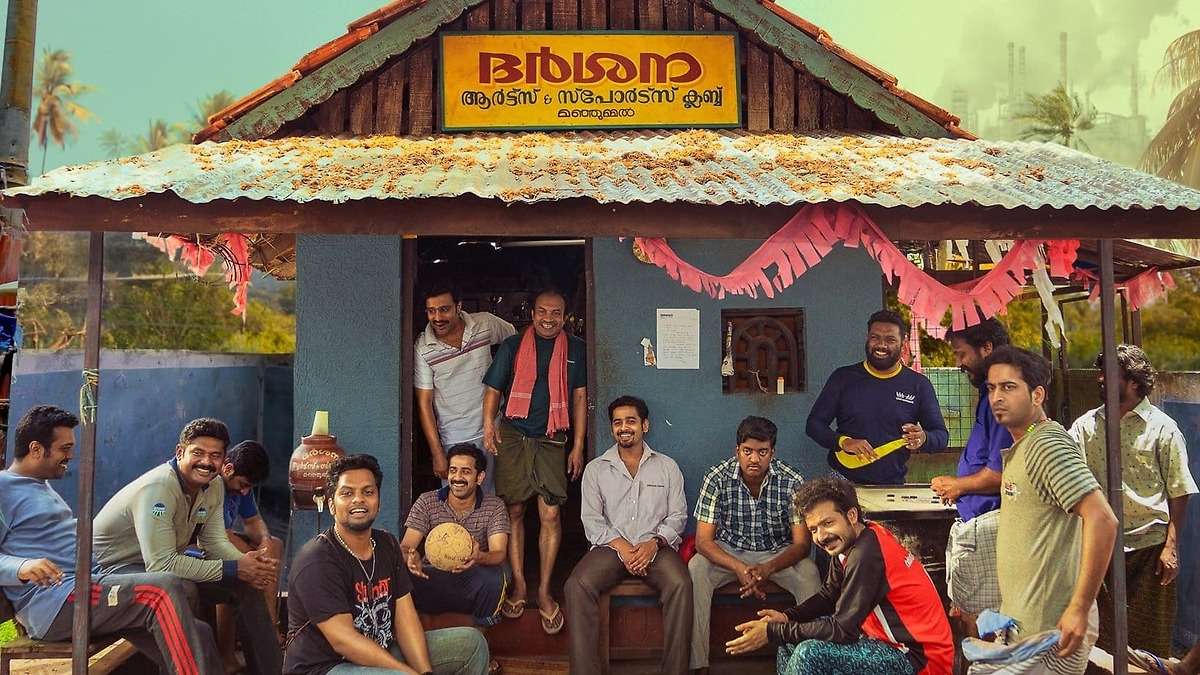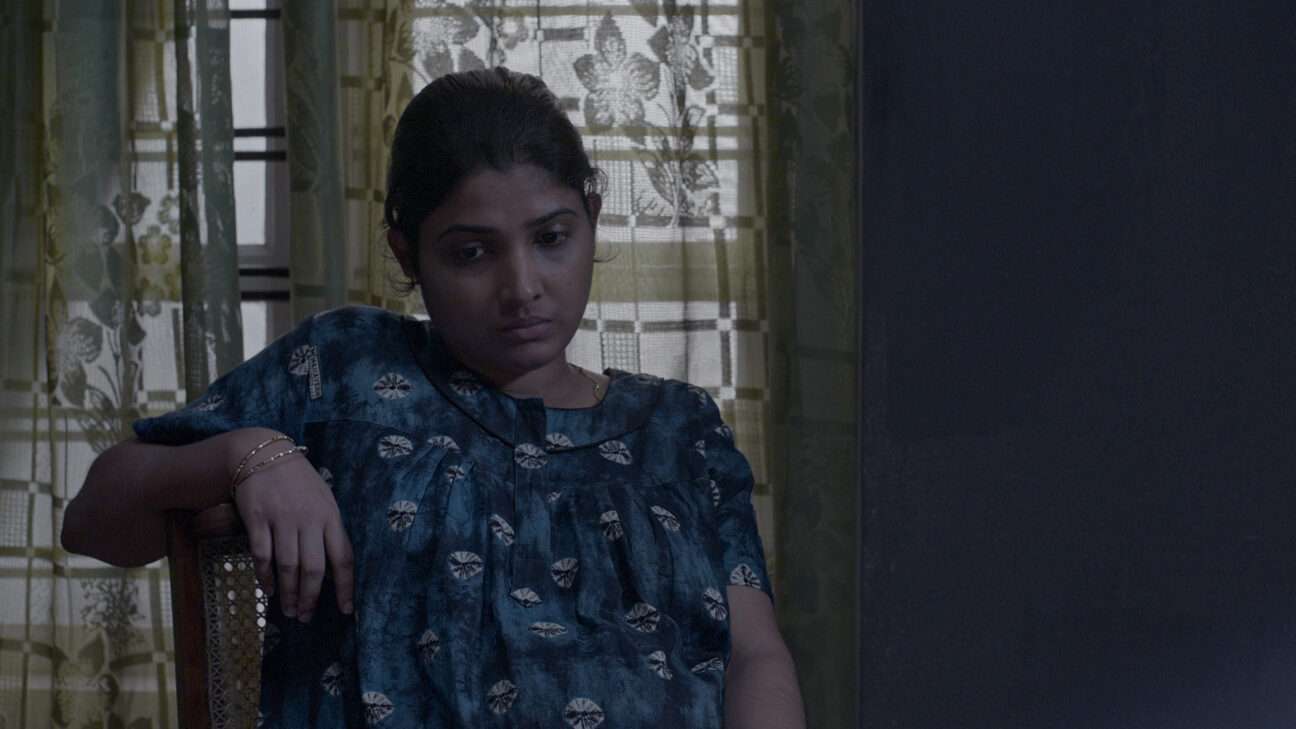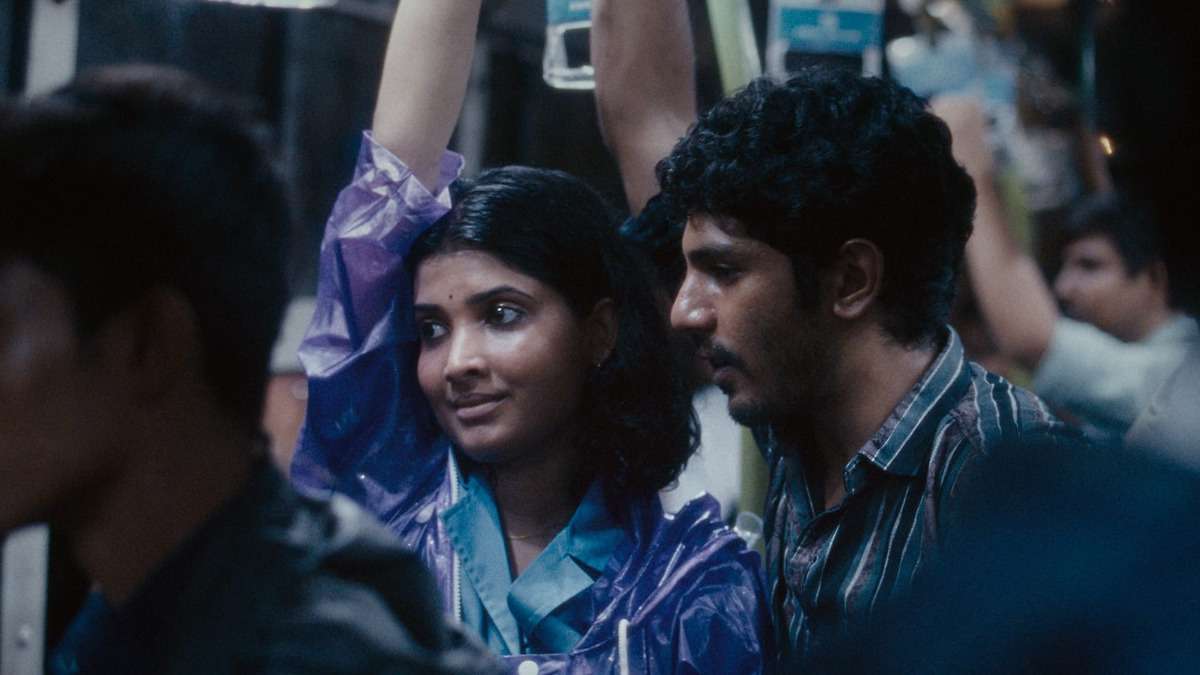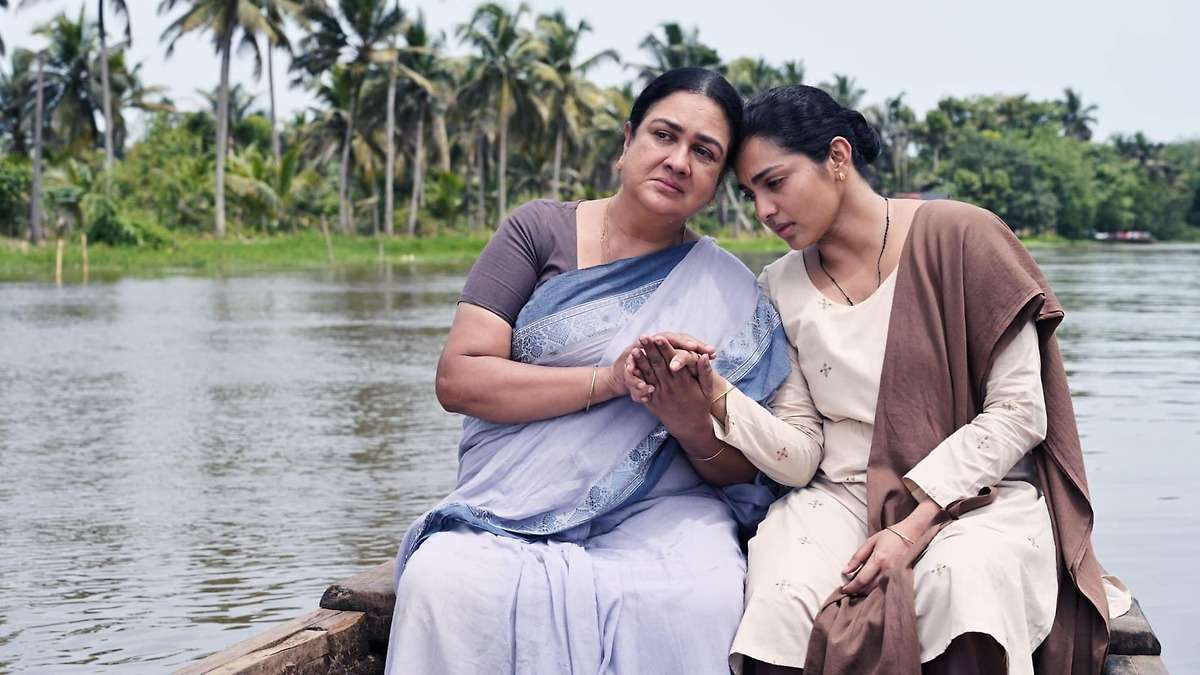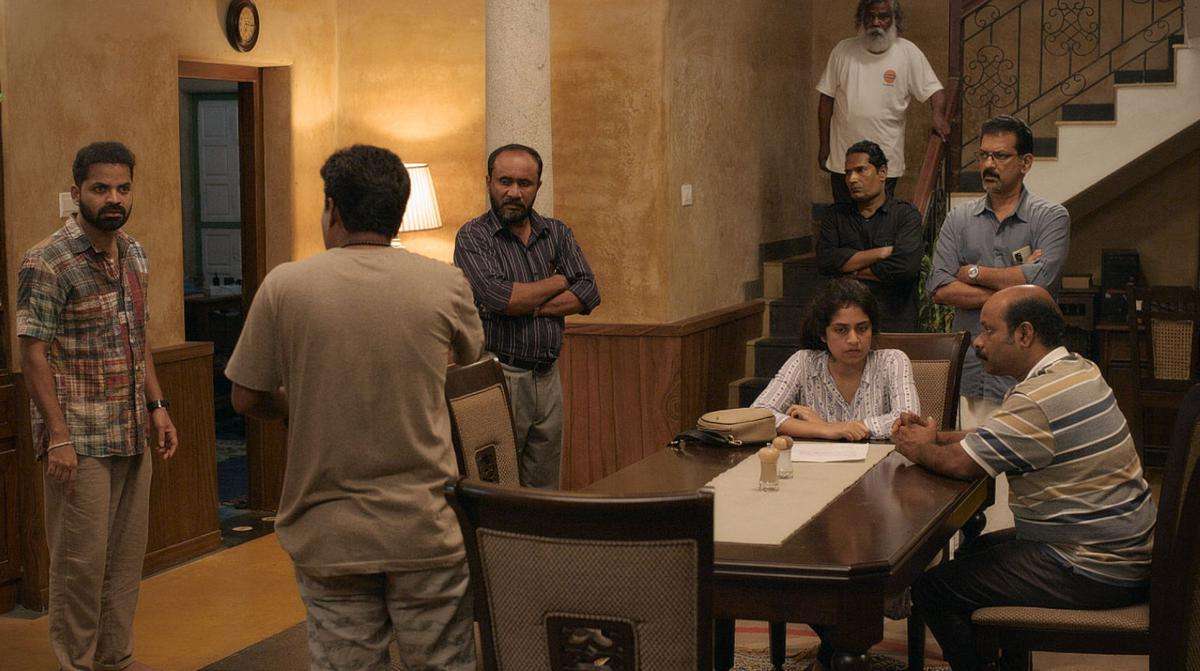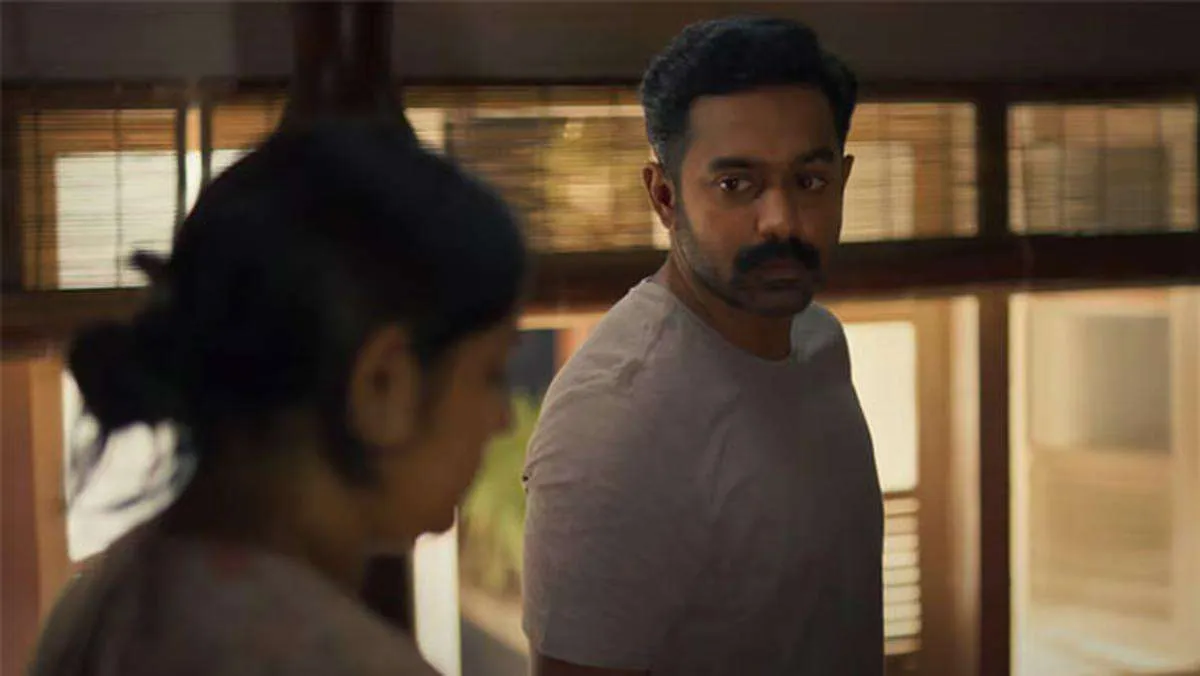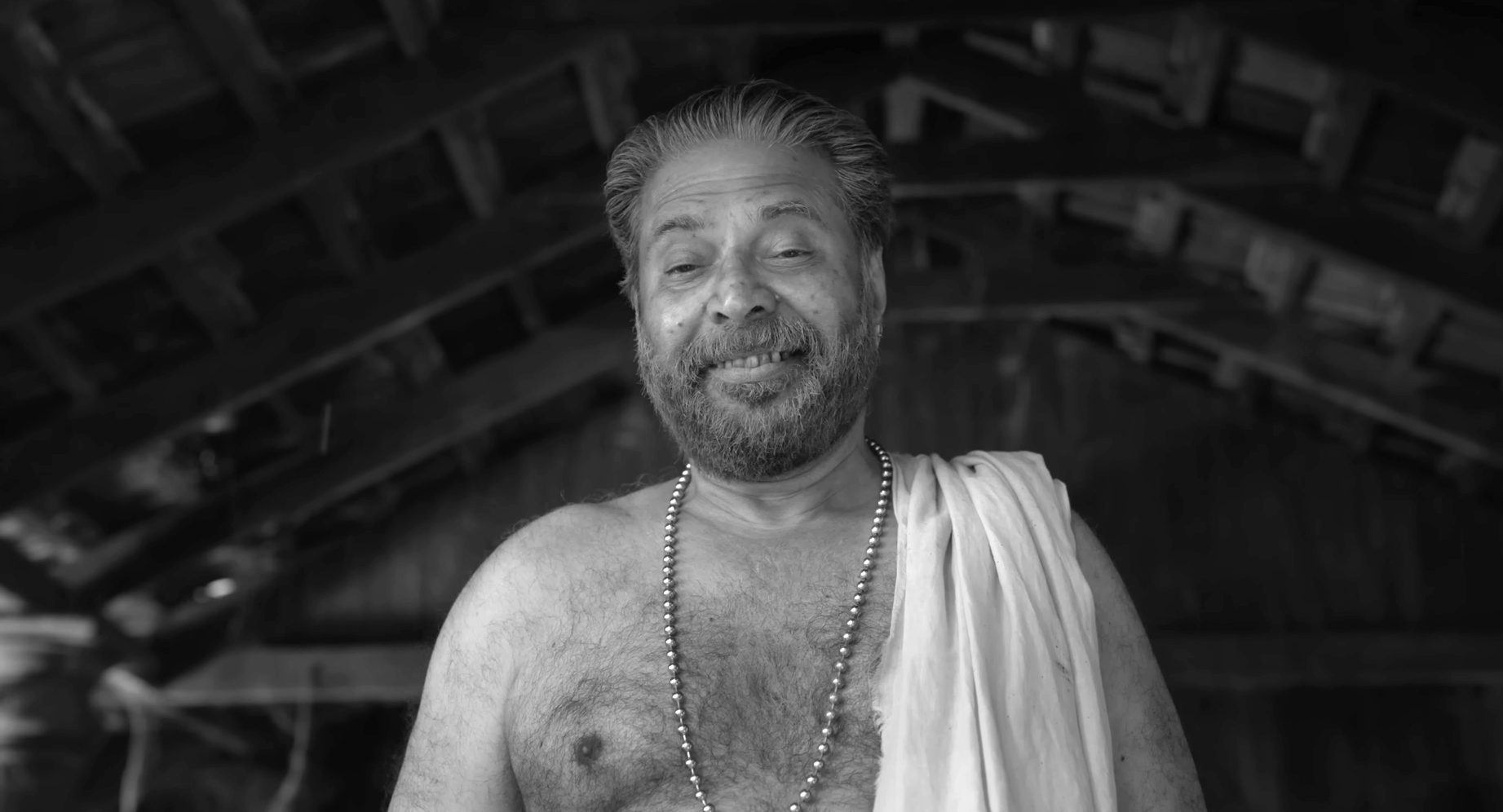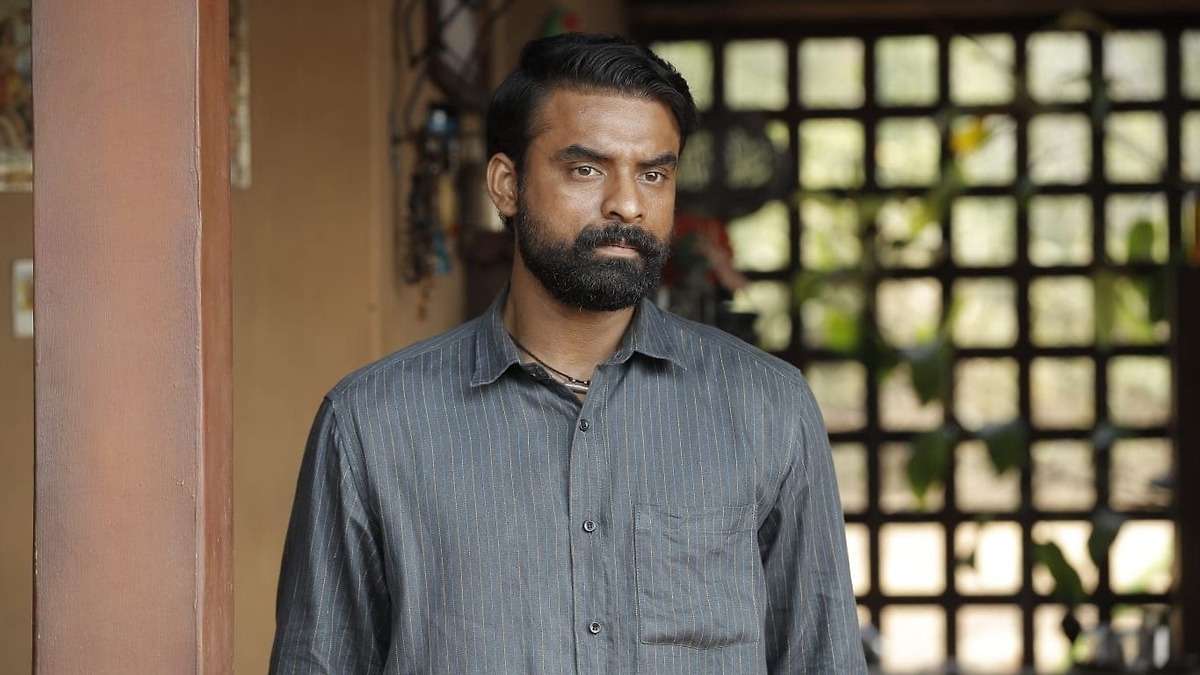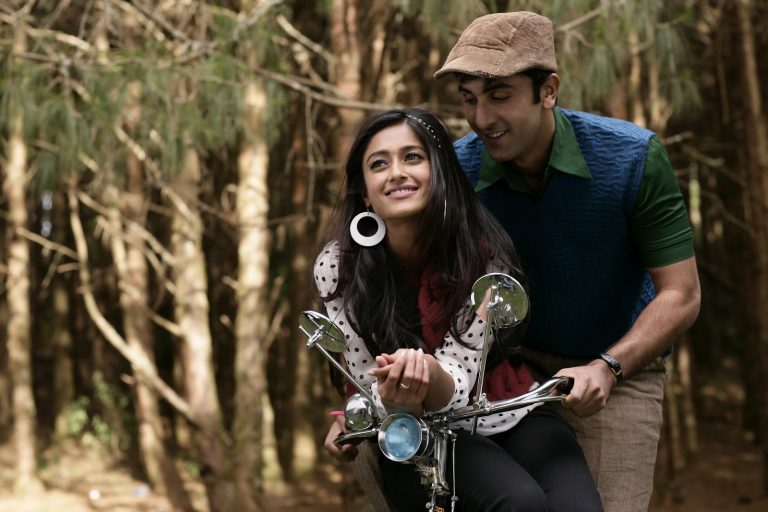The Malayalam movie industry in 2024 found itself at a critical juncture, grappling with a series of controversies and scandals that have cast a shadow over its reputation. This year marked a watershed moment in the ongoing battle against sexual harassment and discrimination, with the long-awaited release of the Hema Committee report. Although delayed by over four years and heavily redacted, the report has sparked a powerful wave of discussions and scrutiny within the industry.
Additionally, the year has witnessed intense debates over the portrayal of Malayali culture in cinema, particularly the depiction of disorderly conduct of Malayalis in public spaces, and the needlessly graphic, often gratuitous, on-screen depiction of sexual violence and the objectification of women. At the heart of these controversies are concerns about the underrepresentation of women in the industry, with many highlighting the prevalence of ‘invisible women’, typecast characters who lack depth or agency. Further fueling the discourse are critical discussions about whether Malayalam cinema truly reflects its claims of inclusivity, as some question the industry’s continued dominance by male-centric narratives and the existence of a so-called “boys’ club” in filmmaking.
Amidst this tumultuous and dark phase marred by discord and contentions, a vibrant transformation was quietly unfolding within the Malayalam film industry, turning 2024 into a golden era, with its cinematic brilliance outselling every other movie industry. Known for its boundless creativity and fearless experimentation, Malayalam cinema continues to redefine the boundaries of storytelling and visual expression. This year, the allure of regional cinema has been in full bloom, offering a captivating blend of comedies, thrillers, horror, and emotional dramas. It comes as no surprise that Malayalam filmmakers possess the courage to unapologetically explore unconventional relationship dynamics and tackle deeply rooted societal issues, including patriarchy, politics, caste, and gender. 2024 has been no exception, with the industry exploring an eclectic mix of themes, techniques, and narratives that resonate deeply with audiences.
From the evocative charm of black-and-white cinematography to poignant explorations of women’s struggles, the mystique of memory, and powerful tales of survival and human connection, Malayalam cinema has ventured into uncharted territories. With remarkable finesse, it has humanized the most complex characters, depicting both male and female bonding in ways that resonate deeply with audiences. Adding to its repertoire were uproarious comedies that delivered pure, uninhibited joy, proving the industry’s ability to evoke a spectrum of emotions. Notably, this year also saw emerging voices take center stage, sophomore filmmakers crafting exceptional works and debut directors making their mark with fresh perspectives and innovative techniques, while some established auteurs opted to step back, allowing new talent to shine. This dynamic interplay of creativity and risk-taking has cemented Malayalam cinema’s reputation as a trailblazer in Indian filmmaking.
2024 showcased spellbinding performances from seasoned veterans like Mammootty alongside emerging talents such as Tovino Thomas, Asif Ali, and Basil Joseph. They made a fantastic feat by delivering hard-hitting stories with depth and conviction, satisfying the audience whether on the big screen or through streaming platforms. However, it was Jagadish and Vijayaraghavan who truly surprised audiences with their exceptional work in supporting roles, adding a fresh dimension to their performances. While the first half of the year saw a noticeable lack of prominent female characters, the second half witnessed a resurgence, with Urvashi, Parvathy Thiruvothu, Nazriya Nazim, Jyothirmayi, Zarin Shihab, Aparna Balamurali, Divya Prabha, and Kani Kusruti, reinvigorating the essence of Malayalam cinema.
Also Read: 10 Best Malayalam Movies Streaming on Netflix Now
With something for every taste, whether action-packed films, gripping thrillers, or thought-provoking dramas, Malayalam cinema has firmly established itself as a powerhouse in Indian filmmaking this year. While the debate over the industry’s focus on realistic films (often pejoratively referred to as prakrithi padangal) continues, there has been a growing acceptance of arthouse sensibilities. Ultimately, Malayalam cinema has enjoyed an unrelenting and dynamic year, marked by both exceptional quality and a remarkable diversity of storytelling. Now let’s take a look at the 10 Best 2024 Malayalam movies.
10. Premalu
“JK.” Just Kidding.
The dynamics of modern love relationships remain relatively uncharted territory in Malayalam cinema, especially in the Gen Z era, but Girish AD expertly navigates this uncharted terrain in his latest film. Known for his youthful romantic comedies, such as “Thanneer Mathan Dinangal” and “Super Sharanya,” Girish has previously delved into the distinct phases of young adulthood and teenage life. Girish now shifts his focus to the complexities of adulthood, where love, heartbreak, and the struggles of life, such as finding a job, take center stage. Sticking to his signature trope of the “loser hero” and “ambitious heroine,” Girish crafts a relatable narrative set in the bustling city of Hyderabad, starring Naslen K. Gafoor and Mamitha Baiju.
The film follows Sachin (Naslen), a timid engineering graduate whose dream of studying in the UK is dashed when his visa application is rejected. Left with no choice but to pursue GATE coaching in Hyderabad with his friend Amal Davis (Sangeeth Prathap), Sachin embarks on a journey that takes him out of his comfort zone. It’s here that he meets Reenu (Mamitha Baiju), a hyperfocused and driven young woman, and is instantly smitten. What follows is a refreshing and thoughtful take on not only the highs and lows of love but also the internal struggles that come with navigating adulthood.
“Premalu” shines as a delightful comedy, largely thanks to its stellar performances, an engaging yet simple screenplay, and a cast of relatable characters. The dialogue writing is sharp, leaving a lasting impression, and Naslen’s impeccable comic timing deserves special mention. Whether the jokes land perfectly or feel slightly silly, you’ll find yourself laughing or grinning uncontrollably, especially when Naslen delivers his lines with such earnest conviction. His expressions, particularly in the Devaragam 2.0 scene alongside Sangeeth Prathap, and his witty retorts during the rejection scene, hit the right comedic notes, evoking genuine laughter.
Shyam Mohan’s portrayal of Aadhi, Reenu’s overly confident love interest, is cringeworthy a portrayal that serves its purpose with aplomb. His “JK” moments are perfectly executed, making him both a source of humor and exasperation. Girish AD brings his signature blend of humor, heart, and relatability to this coming-of-age story, reminding us that the path to love and success is rarely a smooth ride, but one filled with missteps, realizations, and growth. “Premalu” reminds us that while the journey may be messy, it’s all part of the beautiful chaos of life.
9. Sookshmadarshini
How well do you know your neighbors?
In Basil Joseph and Nazriya Nazim-starrer “Sookshmadarshini” (Microscope), Malayalam cinema delivers a riveting tribute to Alfred Hitchcock’s “Rear Window.” MC Jithin, in his sophomore feature, crafts an edge-of-your-seat thriller that keeps you hooked and guessing until the very end. What initially appears to be a run-of-the-mill story masterfully builds tension keeping the audience on their toes. The film introduces us to Priyadarshini (Nazriya Nazim), a curious, nosy, and at times intrusive character, reminiscent of the inquisitive neighbor who can’t resist prying into everyone’s business.
Her life takes a sharp turn when a new neighbor, Manuel (Basil Joseph), moves in next door. When she notices that something is amiss, especially with the relationship between Manuel and his mother, it raises suspicions and red flags, prompting Priyadarshini to embark on her own amateur sleuthing. With her keen eye for detail and relentless curiosity, she starts observing his every move, determined to uncover the secrets he’s hiding. What begins as an innocent investigation transforms into an exhilarating cat-and-mouse game, where nothing is quite what it seems.
Unlike the Hitchcockian thriller, “Sookshmadarshini” effortlessly balances mystery and comedy while exploring themes of voyeurism, curiosity, and the dangers of peering too closely into others’ lives. Screenwriters Libin TB and Athul Ramachandran skillfully maintain an air of uncertainty throughout, never allowing the audience to fully grasp the true nature of the characters or events until the final reveal, placing well-intentioned diversions at the proper place. The narrative taps into the trope of women in the neighborhood, tight-knit through their WhatsApp group, to unravel the mystery.
The performances, particularly from Nazriya and Basil, bring exceptional depth to their characters, with their dynamic evolving into something both engaging and unpredictable. Nazriya, marking her return to Malayalam cinema after a four-year hiatus, subverts her signature bubbly persona, embracing a role that showcases her range and delivers a performance with greater emotional complexity. Basil and Sidharth Bharathan, too, take on uncharacteristic roles that will leave you questioning what’s real and what’s imagined. With evocative cinematography and technical excellence, “Sookshmadarshini” is a remarkable addition to the genre of comedy of intrigue in Malayalam cinema.
8. Aavesham
Bibi Mon happy alle? Mon happy aaano?
Jithu Madhavan’s sophomore feature, “Aavesham,” takes entertainment to the next level, boldly “reintroducing” Fahadh Faasil, who once again proves his exceptional versatility and range as an actor. In this gangster comedy, Fahadh, single-handedly shoulders the film, bringing to life the character of Ranga, a local kingpin, who is a delightful mix of lovable, goofy, terrifying, and, above all, irresistibly entertaining. Set in the bustling city of Bengaluru, “Aavesham” follows the misadventures of three Malayali college students – Aju (Hipster), Bibi (J.S.Mithun), and Shanthan (Roshan Shanavas) – who, desperate for revenge against a group of seniors tormenting them, set out to find a ruthless gangster to do their bidding.
The buildup to Rangan’s introduction and the gradual reveal of his true stature is an absolute laugh riot. Adding to the intrigue is Rangan’s sidekick, Ambaan (Sajin Gopu), who spins a collection of humorous yet chilling stories about his boss. He narrates them with such conviction that you can’t help but question whether they’re exaggerated or rooted in truth. The unfolding events ignite a comedy of errors, leading to an unlikely friendship that sends the characters spiraling down an unpredictable path of conflicts and alliances.
Written as a clear caricature, Ranga is a dynamic and charismatic yet deeply feared character, but it’s Fahadh’s masterful performance that makes him feel truly real. Though he may initially appear comical and eccentric, draped in gold, clad in all white, with a prominent handlebar mustache, with mommy issues, flaunting power yet refusing to fight, Fahadh peels back these superficial layers to reveal an electrifying portrayal. Fahadh’s infectious energy, slapstick antics, and sudden emotional shifts from intense rage to moments “on the verge of tears” are nothing short of captivating. This is a performer hell-bent on leaving a lasting impression, and he delivers in spades.
Sajin Gopu delivers a standout performance as Ambaan by excelling in the stunt sequences and carving out a niche as the perfect foil to Fahadh’s larger-than-life character. The references to “The Shining,” the game of dumb charades, and the “Karinkaliyalle” reel are hilarious, providing moments that will have you laughing out loud. Sushin Shyam’s pulsating score is loud, and hip and perfectly complements the film’s lively mood. Dialogues like “Eda Mwone” and “Sredhikk Ambane” have quickly become catchphrases, adding to the film’s charm. “Aavesham” is arguably Fahadh’s first full-fledged masala film and one of his most colorful anti-hero characters on-screen. And it serves as a powerful rebuttal to any criticism that Fahadh can’t pull off mass characters.
Related to Malayalam Movies: 15 Great Malayalam Movies to Stream on Prime Video
7. Manjummel Boys
There’s a night that lasts forever
We’ve brothers, no blood tie but roots that run deep to rely upon.
In his sophomore feature, “Manjummel Boys,” Chidambaram S. Poduval achieved an unprecedented feat. Raking in over ₹240 crore at the global box office, this universal story of wholesome male friendship and camaraderie became the first-ever Malayalam film to surpass the ₹200 crore mark, making it the highest-grossing Malayalam film of all time. Though devised as a survival thriller, the film is not just a story of a rescue mission, but a poignant exploration of loyalty, sacrifice, and the profound bonds that hold us together in times of unimaginable crisis.
Based on a real-life incident, that occurred in 2006, the film chronicles the adventures of a group of friends who went on a trip to Kodaikanal during their Onam vacation. Their journey takes a dramatic turn when they explore the Guna Caves, named after the 1991 Kamal Haasan classic “Gunaa,” formerly known as the Devil’s Kitchen. In a tragic twist, one of their own, Subhash (Sreenath Bhasi), falls into a 120-foot-deep crevice. What ensues is a gripping tale of desperation and determination, as his friends embark on an extraordinary quest to rescue him, showcasing their unwavering bond in the face of adversity.
In a survival drama, the true power lies not just in the suspense of a rescue operation or the unpredictability of twists, but in how deeply the audience connects with the individual at the heart of the story. “Manjummel Boys” excels in this regard, effortlessly drawing viewers into its emotional core. The film never boasts of male superheroes or macho escapades, but rather portrays vulnerable men with courage, pulling Subhash out of his purgatorial prison. This poignant portrayal of selfless love is beautifully elevated by the use of the song “Kanmani Anbodu Kathalan” which once encapsulated the intimate nuances of romantic relationships.
Under the director’s masterful touch, the song evolves into a timeless anthem, transcending the boundaries of romance to capture the universal essence of love in all forms. Ajayan Chalissery’s efforts as the art director and production designer pay off spectacularly in recreating the atmospheric bat-infested ravine where much of the latter half takes place. Shyju Khalid’s cinematography expertly captures the rescue sequence, heightening emotional stakes and visceral tension as it draws our attention to how Kuttan brings his friend back from the brink of death. Chidambaram also grapples with profound existential questions about spirituality and the existence of God in this rich and reflective journey that lingers long after the credits roll.
6. Family
A leopard in sheep’s clothing.
Cinema has the power to reflect every facet of society and portray a wide range of individuals – the good, the bad, and the ugly. In his latest feature “Family,” Don Palathara interrogates the role of family and religion in concealing and suppressing the darker, more amoral aspects of an individual. With a sharp eye for psychological tension, the film becomes a provocative and riveting exposé of a wolf in sheep’s clothing. At the center of this narrative is Sony (played with unsettling conviction by Vinay Forrt), a Catholic man in his late twenties who presents himself as a well-meaning do-gooder and progressive intellectual trapped in the lush, verdant countryside of rural Kerala.
However, lurking behind his public persona is a self-absorbed narcissist and serial abuser, whose charm and manipulation hide a deeply troubling reality. When some of his family members become aware of his deeds, they are silenced, not by ignorance, but by a system, rooted in patriarchal norms and religious traditions, that intentionally shield men from accountability. The family thus transforms into a fortress, a sturdy closet where the skeletons of the past are locked away, hidden from the prying eyes of the outside world.
What makes “Family” particularly captivating is Don Palathara’s deliberate choice to withhold crucial details, drawing the audience into a world of ambiguity. The director’s minimalist style, evident in his use of static shots and a layered narrative, creates a sense of stillness, which contrasts sharply with the undercurrents of tension and unease throughout the film. At its core, “Family” is a masterful critique of the moral contradictions hidden beneath the surface of the so-called “ideal Christian way of life.”
Palathara uses the Christian backdrop, with its rituals and deeply ingrained cultural practices, to craft an atmosphere of innocence and piety. This setting, coupled with the idyllic portrayal of village life and strong family bonds, creates a stark juxtaposition against the darkness that simmers within the characters. The film’s unsettling power lies in the realization that such individuals, people who embody both charm and cruelty, continue to exist among us, their wrongdoings hidden in plain sight. “Family” thus becomes not just a narrative about one man’s duality but a chilling portrait of how the sanctity of family and religion can often be twisted into mechanisms of repression, safeguarding male privilege and protecting toxic behaviors.
5. Prabhayay Ninachathellam (All We Imagine As Light)
This is not the city of dreams, it’s the city of illusion. Even if you stay in the gutter, you aren’t allowed to feel angry. They call it ‘the spirit of Mumbai.’
Payal Kapadia, following her celebrated documentary “A Night of Knowing Nothing,” transports us to the chaotic and buzzing metropolis of Mumbai and then to the idyllic seaside in her meditative slice of life “All We Imagine as Light.” This poetic and dreamlike reverie of sisterhood is an exquisitely beautiful expression of female friendships, solidarity, and defiance with the possibility of romance. The film follows the lives of three women, bound by both circumstance and compassion, unfolding with a quiet yet powerful resonance. Prabha (Kani Kusruti), a seasoned nurse, leads a life marked by solemnity and isolation, her marriage shattered and her heart quietly abandoned by her husband.
Her younger colleague, Anu (Divya Prabha), is her polar opposite, spirited, playful, yet internally conflicted, as she secretly navigates the complexities of a forbidden love with a Muslim boy (Hridhu Haroon), trapped by societal taboos surrounding interfaith relationships. Both women, shaped by their Malayali roots, grapple with being outsiders in their own land, caught between their gender, emotional struggles, and the weight of economic hardship. Completing this poignant trio is Parvaty (Chhaya Kadam), a widowed, middle-aged hospital worker, who finds herself facing the ruthless forces of gentrification. As a woman with no official papers, she’s being evicted by unscrupulous builders, her home as fragile as the dreams she’s carried with her through years of toil.
Winner of the Grand Prix award at the Cannes Film Festival, Payal Kapadia infuses her love for cinema and feminist and political ideologies in her storytelling. The film stands out in its color palette, cinematography, and eerily serene background score. It subverts the familiar, often shallow clichés of Mumbai as a city of endless opportunity and embrace, presenting instead a more complex and raw portrait of urban survival. Through its nuanced portrayal of women navigating this chaotic environment, “All We Imagine as Light” transforms the city into a character itself, one that both challenges and shapes its inhabitants, particularly those who exist on the periphery.
In doing so, the film offers not just a poignant exploration of female resilience but also a piercing commentary on the city’s indifference to the struggles of those who live in its shadows. In a world where women are often pitted against each other, a construct deeply ingrained in our societal framework, the film presents a refreshing narrative of unity. The bond between these women transcends the barriers of age, background, and personal hardship, highlighting the profound power of solidarity. The abundance of rapturous visuals is not more striking than seeing Prabha and Anu forging their connection. This is the essence of the film, the idea that, in the face of adversity, women can uplift and empower each other, offering not only support but also a path to healing and resilience.
More Related to Malayalam Movies of 2024: 30 Best Films of 2024
4. Ullozhukku
What prestige? What honesty? If our children aren’t happy, what does it matter?
At a time when there was an ongoing debate about the lack of strong female representation in Malayalam cinema, following the releases of “Aavesham” and “Manjummel Boys,” Christo Tomy made his feature debut with “Ullozhukku” (Undercurrent), showcasing the powerhouse performances from Urvashi and Parvathy Thiruvothu. It is a tense family drama that overflows with the undercurrent of emotions ranging from remorse to reconciliation and empathy. An exploration of unadulterated feminine lives, “Ullozhukku” portrays a womance, the emotional intimacy and bonding, between two women, Leelamma (Urvashi) and her daughter-in-law Anju (Parvathy Thiruvothu).
Set against the backdrop of the flooded regions of Alappuzha, the film tells the story of Anju, who is married to Thomaskutty (Prasant Murali), a man suffering from a chronic illness. The couple lives with Thomaskutty’s mother, Leelamma (Urvashi). As Thomaskutty’s health deteriorates, Anju finds herself trapped in a loveless marriage and embarks on an affair with her long-time lover, Rajeev. Forced into marriage after her parents discovered her relationship with Rajeev, Anju’s emotional journey unfolds, revealing layers of complex choices and desires.
“Ullozhukku” is a two-hour-long, taut, and discomforting drama strained with familial claustrophobia and complex human bonds where characters are compelled to confront their secrets and mistakes and search for redemption. The film dismantles the conventional ideals of marital relationships, peeling back the layers to expose the amorality that can lie beneath. The characters are ensnared in their own mental prisons mirroring the plight of a dead body stranded, denied peace as it remains unburied, submerged by the encroaching floodwaters. The women at the heart of this story are victims of lovelessness and suppression, carrying the weight of generational trauma of their dysfunctional families.
One has resigned herself to this harsh reality, tempered by the struggles of family life, yet still finds herself yearning to preserve it. The other, flickering with defiance, fights to break free from its suffocating, asphyxiating grip. These opposing forces converge in a rare, delicate dance, connected by the flood and a solitary boat ferrying its passengers, where reconciliation becomes a quiet yet powerful triumph of women’s agency, a subtle but significant break from the shackles of patriarchy. With profound sensitivity, “Ullozhukku” doesn’t seek to point fingers or assign blame. Instead, it inclusively honors each character’s perspective, offering a space for mutual respect and understanding. It is a tender exploration of the human spirit, a film that speaks to the complexity of relationships and the silent battles fought within the confines of family and tradition.
3. Aattam
I think it was a Tactile Hallucination.
Debutant writer-director Anand Ekarshi’s “Aattam/The Play” emerges as Malayalam cinema’s compelling response to Sidney Lumet’s “12 Angry Men.” A brilliantly crafted thriller, it is highly relevant in the post-#MeToo era, offering a sharp, unflinching critique of whether our seemingly progressive society is truly confronting sexual harassment. The film provides an intense behind-closed-doors look at male behavior while questioning the legitimacy of sexual harassment allegations made against male allies. This gripping drama centers on Anjali (Zarin Shihab), the sole female member of a theatre troupe called Arangu, who faces sexual misconduct from one of the men in the group.
In the meeting that unfolds among the troupe members, the film skillfully strips away the thin veneer of progressiveness that many male characters wear as a mask. What follows is a gripping exploration of male psychology, exposing their defensiveness, denial, and knee-jerk reactions when faced with the discomfort of an unpleasant scandal. In doing so, “Aattam” becomes a searing, intricate study of power, privilege, and the unsettling dynamics of gender politics.
“Aattam” is an exceptionally multi-layered script that raises profound questions about society’s collective mindset. It is a stark portrait of the “bro code,” chilling and darkly humorous in its unsettling accuracy, exploring the auditing of a crime against a woman and how even the investigation intimidates and persecutes the survivor. The film draws inspiration from Girish Karnad’s acclaimed “Hayavadana,” delving into themes of identity, self-discovery, and the quest for wholeness. “Aattam” is a deeply rooted character study, with the narrative delving into the fragility and insecurities that plague men. It deftly uncovers the blatant misogyny, ego, envy, selfishness, and pseudo-righteousness that fuel human actions and interactions.
The tension in the film arises from personality conflicts, gender dynamics, and the ambiguity surrounding the true culprit. Complemented by stunning performances from the entire cast, “Aattam” is a near-perfect social commentary that both terrifies and satisfies in equal measure. The meta-referential discourse in the final moments offers a cathartic experience, reshaping and reevaluating the viewer’s worldview. Winning three honors at the 70th National Film Awards for Best Film, Best Screenplay, and Best Editing, “Aattam” stands as a testament to the power of storytelling proving that a film can make a significant impact without relying on superstars or a hefty budget.
2. Kishkindha Kaandam
Truths that do no good for anyone. Let them be reduced to ashes.
Memory is a blessing and a curse. It is a theme exemplified in Dinjith Ayyathan’s brilliantly crafted sophomore directorial, “Kishkindha Kaandam.” Set against the picturesque backdrop of Kerala in the monkey-inhabited Kallepathi reserve forest, this mystery drama focuses on Appu Pillai (Vijayaraghavan), a retired military officer in his seventies, whose unyielding grumpiness shapes much of the narrative. Alongside him is his son, Ajayachandran or Ajayan (Asif), a forest officer, who has just married Aparna (Aparna Balamurali) in a simple, low-key registered ceremony.
Tensions arise when Appu Pillai’s licensed gun mysteriously goes missing just before an impending election, prompting the investigation that unravels both a missing person case and the shifting dynamics of personal relationships. As secrets begin to surface, Aparna, driven by a quiet yet insistent curiosity, embarks on a journey to peel back the layers of Appu Pillai’s composed facade and uncover the peculiarities of his behavior. In doing so, she sets off a chain of events that intricately weave together family, politics, and long-buried secrets, revealing the complex undercurrents that bind them all.
One of the best screenplays in recent Malayalam cinema and written by Bahul Ramesh, “Kishkindha Kaandam” borrows its title from the “Ramayana,” but the linkages to the epic are mostly atmospheric and subtle rather than direct. With the tagline “A Tale of Three Wise Monkeys,” the film makes use of the monkey symbolism and the dense forest in which the entire monkey army resides. Aparna serves as deus ex machina responsible for unraveling the uncertainties and mysteries surrounding the situation, observing from a distance while evoking the same curiosity in the viewers.
Vijayaraghavan delivers one of his finest performances in the film as he internalizes a character torn between the faded pride of his past and the vulnerabilities of old age, shouldering secrets too heavy for one soul to bear. Asif Ali also gives his career-best performance by taking on a character arc rich with emotional depth, drawing from his inner well of feelings with impressive nuance, delivering a performance that resonates powerfully. It is the seamless fusion of these performances that creates a flawless narrative, marked by striking authenticity. The shared theme of forgetting and motivated forgetting and the freedom to live only in the reality one chooses, make this film a unique and layered narrative.
1. Bramayugam: The Age Of Madness
This is Bramayugam, a worsened era of Kaliyugam.
On the 30th anniversary of Adoor Gopalakrishnan’s “Vidheyan,” in which Mammootty perfectly embodied the tyrannical landlord Bhaskara Pattelar, comes yet another personification of evil from the Malayalam cinema icon. Known for his consistent delivery of exceptional performances, Mammootty’s relentless ‘aarthi’ (greed) for his craft has led him to a revolutionary film in Malayalam cinema that pushes the limits of storytelling, one that redefines the very boundaries of horror with its unique blend of folklore, mythology, history, and black-and-white noir.
Rahul Sadasivan, in his third feature “Bramayugam,” which he co-wrote with TD Ramakrishnan, intertwines themes of caste, cycles of oppression, feudalism, bodily possession, and witchcraft, and casts thespian Mammootty as Kodumon Potti, a high-born landowner in 17th-century Kerala, the last surviving member of a crumbling, dilapidated mana. When a low-caste singer named Thevan (Arjun Ashokan), trying to escape slavery, stumbles into the mana, Koduman Potti takes a fascination for Thevan’s singing and graciously offers him food and lodging, much to the irritation of the Cook (Siddharth). However, as the story unfolds, Koduman Potti’s true nature is gradually unveiled, a shapeshifting demigod, a chathan, concealed beneath a human facade.
“Bramayugam” stands out as a period horror film deeply rooted in ancient folklore, using rich visual metaphors of tyranny and destruction. While it masterfully evokes spine-chilling terror, the film also carries the nostalgic allure of a grandmother’s tale. The film is essentially a timeless saga of human subjugation and oppression in a feudal society and the attempts of marginalized characters, the Cook and the Singer, as they try to subvert entrenched power structures. It draws on the myth of the Yakshi (played by Amalda Liz), a creature born from patriarchy’s fear of female sexuality, who seduces and devours those who wander into her domain. It also utilizes the metaphor of the game of Pakida or the game of fate, to illustrate the rigged status quo and the corruption of power.
Mammootty’s performance is mesmerizing, keeping viewers spellbound with his commanding presence, resounding laugh, and the chilling horrors he embodies. The duality he embodies in the film blurs the line between the man and the myth, between decay and transformation. Christo Xavier’s haunting score, Jothish Shankar’s evocative art direction, and Shafique Mohamed Ali’s precise editing create a palpable sense of loneliness, hallucinatory terror, and an inescapable time loop in which the characters are trapped.
Rahul Sadasivan, who made his mark with “Bhoothakalam,” appears to be carving out a unique niche in Malayalam cinema, one reminiscent of the unsettling atmospheres created by Robert Eggers in “The Lighthouse” and Rahi Anil Barve in “Tumbbad.” “Bramayugam” is poised to undoubtedly become a classic in the Malayalam horror genre, making it one of the best atmospheric horror films of all time, with its transcendent qualities marking a significant milestone in Mammootty’s career. Mammootty seems to have challenged himself by taking on shady, morally ambiguous characters that defy the conventions of a typical hero, aiming to push himself and the audience beyond their comfort zones.
Now that we are done with the main list, let’s get to the ‘Honorable Mentions’ and some of the other fascinating 2024 Malayalam movies that failed to make the cut:
Honourable Mention
Aadujeevitham: The Goat Life
After the long wait of 16 years, a thousand obstacles, a million challenges, and three waves of a pandemic later, Blessy’s “Aadujeevitham” made its presence known on the big screen. And if technical brilliance, hard work, and years of dedication were the yardsticks to measure cinematic excellence, “Aadujeevitham” would undoubtedly stand among the finest. Based on the acclaimed novel of the same name, Blessy’s adaptation paints a harrowing portrait of survival and resilience through the life of Najeeb (Prithviraj Sukumaran), a Malayali migrant worker forced into servitude as a goatherd in Saudi Arabia.
The film delves deep into the unimaginable suffering of a man stripped of his dignity and freedom, yet clinging to the faintest hope of survival. However, while the premise is deeply compelling, Blessy’s script falters in building the necessary tension, leaving the narrative feeling monotonous at times. The film skips over significant poignant portions of the novel, losing some of the emotional depth and complexity that could have added more layers to Najeeb’s painful journey.
Despite these narrative shortcomings, Prithviraj Sukumaran delivers one of his career-best performances. His physical transformation for the role is striking, but it’s his portrayal of Najeeb’s profound psychological and emotional evolution that truly stands out. Through his portrayal of unrelenting hardship and despair, Prithviraj captures the essence of a man slowly unraveling under the weight of his suffering, yet finding an unbreakable will to survive. The depth of his performance is both heartbreaking and awe-inspiring, adding a rich layer of humanity to the film’s raw and painful narrative. It’s also a breathtaking visual extravaganza, captured by Sunil K.S., which beautifully contrasts the lush landscapes of Kerala with the barren, infinite expanse of the desert. While “Aadujeevitham” doesn’t fully capture the depth and complexity of its source material, it remains a poignant exploration of the human spirit’s capacity for endurance in the face of inhumanity.
Ajayante Randam Moshanam (Arm)
A landmark film in Tovino Thomas’ career after his incredible feat in “Minnal Murali,” “Ajayante Randam Moshanam” offers a thrilling blend of action, fantasy, and drama, set against the picturesque backdrop of Kerala. This ambitious film unfolds across three generations, following the lives of the heroes Maniyan, Kunjikelu, and Ajayan, as they embark on a mission to protect Chiyothivilaku, the land’s most revered treasure.
Directed by debutant Jithin Laal, the film incorporates magic, folklore, history, romance, and supernatural elements, all seamlessly woven in perfect harmony. Ajayan, played by Tovino Thomas, is caught in the shadow of his ancestors—his great-grandfather Kunjikelu was a celebrated warrior, while his grandfather Maniyan, a man marked by shame, was branded a thief by their village. It is a poignant meditation on the burdens of family history and the search for identity in a world that insists on defining individuals by their past.
Tovino Thomas is the film’s beating heart, delivering a career-defining performance in a triple role that spans multiple timelines. He brings depth and distinctiveness to each of the three characters—Maniyan, Kunjikelu, and Ajayan—infusing them with unique gestures and personality traits that make each portrayal memorable. His ability to navigate through these different identities with nuance and precision is a testament to his versatility as an actor. Surabhi Lakshmi, as Maniyan’s wife Manikyam, leaves an impression in the short role that she gets.
“Ajayante Randam Moshanam” explores powerful themes of lineage, generational trauma, and oppressed caste identity. The narrative delves into the complexities of legacy and how the sins or glories of the past seep into the present. This generational stigma, compounded by the rigid caste system that defines their world, creates a heavy emotional weight that Ajayan must navigate. The social commentary on casteism is subtle yet potent, highlighting the deeply ingrained prejudices that shape identity and social standing.
Special Mentions:
Cinema, at its essence, is a collective art form, a seamless fusion of multiple elements that work in harmony to tell a story. It is about the entire experience—the script, direction, performances, cinematography, sound, and editing—all contributing to the narrative in a way that no single component can stand alone. However, there is often the tendency to admire the parts.
Lijo Jose Pellissery tries something new with the Mohanlal-starrer, “Malaikottai Vaaliban,” an unconventional film of epic proportions about a legendary warrior wandering through villages, entangled in conflicts, and encountering transformative figures along his path. Madhu Neelakandan’s breathtaking long shots and Mohanlal’s dynamic performance add to the film’s allure, but the narrative and character development fall short. Purposefully made slow with excessive use of slow-mos, the film leaves an underwhelming impression, unable to fully harness its potential or deliver a compelling emotional payoff.
Amal Neerad’s “Bougainvillea” stands apart from his previous works, marking a distinct departure in both style and substance. Adapted from Lajo Jose’s novel “Ruthinte Lokam” (2019), it marks Jyothirmayi’s comeback to cinema after an 11-year hiatus. A psychological thriller, “Bougainvillea” follows Reethu (played by Jyothirmayi), who suffers from both retrograde and anterograde amnesia. As she becomes embroiled in the investigation of a series of missing girls, her only anchor is her obsessive fixation on bougainvillea flowers, which she compulsively paints. While Neerad skillfully combines mainstream cinematic elements with impressive technical finesse, the film stumbles in its execution, much like the fragmented memories of its protagonist. The clichéd backstory, which echoes the flaws found in the novel, detracts from the film’s otherwise intriguing premise.
Vipin Das, who previously impressed audiences with “Jaya Jaya Jaya Jaya Hey,” a fun-filled experience while also conveying the right message, returns with yet another entertaining comedy “Guruvayoor Ambalanadayil,” that rides high on the novelty of the bromance and, driven by humorous exchanges between the characters. Prithviraj Sukumaran and Basil Joseph deliver a decent dose of wholesome entertainment. However, despite its standout comedic moments, the film ultimately feels like an average offering, unable to fully sustain its initial promise.
Arun Chandu’s “Gaganachari” is a bold and experimental venture blending dystopian sci-fi with a sharp comedic edge. Set in a post-apocalyptic Kerala, the film follows three troublesome bachelors whose lives take an unexpected turn when their apartment becomes a refuge for an extraterrestrial female fugitive. This intriguing premise, enriched by Chandu’s engaging narrative and confident execution, offers a unique cinematic experience. Garnished with a heavy dose of pop culture references, this film captures the essence of 80s and 90s Malayalam cinema.
Jis Joy’s “Thalavan,” penned by Anand Thevarkkat, aspires to be a meticulously crafted investigative thriller but occasionally flirts with the familiar dynamics of “Ayyappanum Koshiyum.” The performances by Biju Menon and Asif Ali are unquestionably compelling, with each actor infusing his character with gravitas, elevating the film’s murder mystery to a more engaging level. While the narrative initially holds promise with its intriguing premise, the film begins to falter as it unfolds.
The technical aspects are competent but uninspired, offering little to distinguish them from the typical genre fare. As the story progresses, the movie introduces an overabundance of twists and deviations, which, while intended to deepen the mystery, ultimately make the plot harder to follow. The result is a thriller that, despite its strong start and solid performances, struggles to maintain coherence, leaving the audience lost amid the ever-complicating web of intrigue.
Anand Menen’s “Vaazha – Biopic of a Billion Boys” offers a delightful comedy that is as heartwarming as it is entertaining. The story revolves around five carefree teenage boys, unfairly labeled as “vaazha” (a slang for “good-for-nothings”) by their overbearing parents, simply because they fail to live up to expectations. The narrative follows their journey, showing what they eventually achieve in life, with plenty of ups and downs along the way. What truly works for the film is its relatability. Menen crafts a story that resonates with anyone who has ever faced societal pressure or struggled with parental expectations. The characters are refreshingly real, and their carefree spirit is infectious, offering a much-needed escape from the usual high-stakes drama. It half veers towards melodrama relying on tear-jerking clichés, and at times feels overly preachy.
Darwin Kuriakose’s “Anweshippin Kandethum” and Ullas Chemban’s “Anchakkallakokkan,” both directorial debuts deserve special mention for their storytelling and craft.


